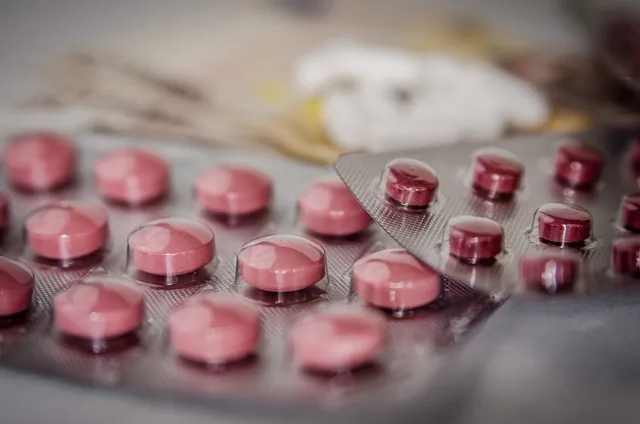Udiliv 300 Uses – Ursodeoxycholic acid (UDCA),
the active ingredient in Udiliv, is a naturally occurring bile acid
that is synthesized in the liver from cholesterol.
Udiliv 300 is a medication that is primarily used to treat various liver disorders, such as primary biliary cholangitis (PBC) and intrahepatic cholestasis of pregnancy (ICP).
It works by reducing the amount of cholesterol produced by the liver, as well as decreasing the level of bile acids in the liver and intestines.
By reducing the amount of cholesterol produced by the liver, Udiliv helps to lower the level of cholesterol in the bile, which can help prevent the formation of gallstones.
Additionally, Udiliv helps to improve liver function by reducing the level of toxic bile acids in the liver and intestines. This helps to protect liver cells from damage, reduce inflammation, and promote the regeneration of healthy liver tissue.
Udiliv is Manufactured by Abbott Laboratories.
Overall, Udiliv works by regulating the production and flow of bile acids, which can help improve liver function and reduce the symptoms of liver disorders.
Udiliv 300 Tablet Uses
UDCA has several mechanisms of action that make it effective in treating various liver and gallbladder disorders.
Prevent Gallstones: UDCA reduces the production of cholesterol in the liver, which helps to prevent the formation of Gallstones.
It also reduces the secretion of bile acids from the liver, which reduces the lithogenicity (stone-forming tendency) of the bile.
Primary Biliary Cholangitis (PBC): PBC is a chronic liver disease that causes inflammation and damage to the bile ducts in the liver.
UDCA reduces inflammation and promotes the regeneration of damaged liver cells.
It also reduces the accumulation of toxic bile acids in the liver by increasing the flow of bile from the liver to the small intestine.
Non-Alcoholic Fatty Liver Disease (NAFLD): In NAFLD, fat accumulates in the liver, causing inflammation and damage.
UDCA reduces inflammation, improves liver function, and helps to prevent further liver damage by reducing the amount of fat that accumulates in the liver.
Drug-Induced Liver Injury: Certain medications can cause liver damage.
UDCA protects the liver from the toxic effects of these medications by reducing inflammation and promoting the repair of damaged liver cells.
Cystic Fibrosis-Related Liver Disease: Cystic fibrosis is a genetic disorder that affects the lungs and digestive system.
The disease can also cause liver damage, which can lead to liver failure.
UDCA improves liver function and reduces inflammation by increasing the flow of bile from the liver to the small intestine.
It also reduces the amount of fat that accumulates in the liver.
Overall, UDCA in Udiliv works by reducing inflammation, promoting liver cell regeneration, increasing bile flow from the liver to the small intestine, and reducing the production of cholesterol and liver enzymes that are associated with liver damage.
Udiliv 300 Dose
The dosage of Udiliv (Ursodeoxycholic acid) may vary depending on the individual’s medical condition, age, weight, and other factors.
The recommended dosages for some common indications are as follows:
Gallstones: The recommended dosage is 8–10 mg/kg body weight per day, usually divided into two or three doses.
The maximum dose should not exceed 15 mg/kg per day.
Primary biliary cholangitis (PBC): The recommended dosage is 13–15 mg/kg body weight per day, usually taken in two or three divided doses.
The maximum daily dose should not exceed 20 mg/kg per day.
Non-alcoholic fatty liver disease (NAFLD): The recommended dosage is 13–15 mg/kg body weight per day, usually divided into two or three doses.
The maximum daily dose should not exceed 20 mg/kg per day.
Cystic fibrosis-related liver disease: The recommended dosage is 20–30 mg/kg body weight per day, usually divided into two or three doses.
The maximum daily dose should not exceed 30 mg/kg per day.
The dosage may need to be adjusted based on the individual’s response to treatment and any side effects.
Udiliv tablets should be swallowed whole with water and taken with food.
The tablets should not be crushed or chewed. If a dose is missed, it should be taken as soon as possible, but if it is close to the time of the next dose, the missed dose should be skipped and the regular dosing schedule resumed.
Udiliv 300 Side Effects
Like all medications, Udiliv can cause side effects. The most common side effects of Udiliv include:
Diarrhea
Constipation
Stomach pain
Nausea
Vomiting
Headache
Dizziness
Back pain
Joint pain
These side effects are usually mild and go away on their own.
If you experience any of these side effects and they are bothersome, talk to your doctor about how to manage them.
In rare cases, Udiliv can cause more serious side effects, such as:
Allergic reactions, including rash, hives, itching, and swelling of the face, tongue, or throat
Severe stomach pain, which may be a sign of pancreatitis
Dark urine or yellowing of the skin or eyes (jaundice), which may be a sign of liver problems
Unusual bleeding or bruising
Chest pain or shortness of breath
If you experience any of these more serious side effects, seek medical attention immediately.
It’s important to note that this is not a comprehensive list of all possible side effects of Udiliv.
Udiliv 300 Uses in Pregnancy and Breastfeeding
Udiliv is classified as a pregnancy category B medication, which means that it is generally considered safe to use during pregnancy.
However, as with all medications, you should consult your doctor before taking Udiliv if you are pregnant or planning to become pregnant.
Studies have shown that Udiliv does not appear to have any harmful effects on the fetus.
In fact, Udiliv is sometimes prescribed to pregnant women who have a liver condition called intrahepatic cholestasis of pregnancy (ICP).
ICP can cause itching and liver problems for the mother, and in some cases, can lead to complications for the baby.
Udiliv can help reduce symptoms and improve outcomes for both the mother and the baby.
As for breastfeeding, there is limited data on whether Udiliv passes into breast milk.
However, since Udiliv is not absorbed well by the body and is primarily excreted in the feces, it is unlikely to pass into breast milk in significant amounts.
Nevertheless, you should still talk to your doctor before taking Udiliv while breastfeeding.
Udiliv 300 Dose for Kidney Patients
Udiliv is primarily used to treat liver disorders and there is limited data on the use of Udiliv in patients with kidney disease.
However, since Udiliv is primarily excreted in the feces and is not metabolized by the kidneys, it is generally considered safe for use in patients with mild to moderate kidney impairment.
In patients with severe kidney impairment, the use of Udiliv should be carefully monitored, and the dose may need to be adjusted based on the individual patient’s kidney function.
In general, the recommended dose of Udiliv for adults is 13–15 mg/kg/day, divided into two to three doses per day.
The maximum daily dose should not exceed 1,500 mg.
However, the appropriate dose of Udiliv for kidney patients may vary depending on the individual’s kidney function and other medical conditions.
Interaction of Udiliv 300 Tablet
Udiliv 300 may interact with certain medications or supplements.
One potential interaction of Udiliv is with antacids or other medications that reduce stomach acid, such as proton pump inhibitors (PPIs) or H2 blockers.
These medications can decrease the absorption of Udiliv, so it is recommended to take Udiliv at least 2 hours before or 2 hours after taking these medications.
Udiliv may also interact with medications that are metabolized by the liver, such as some statins, immunosuppressants, and antifungal medications.
These medications can increase the levels of Udiliv in the blood, which can increase the risk of side effects.
In addition, there is limited data on the use of Udiliv with other medications or supplements.
Overall, while Udiliv is generally considered safe and well-tolerated.
How Does Udiliv 300 Work for Fatty Liver
Fatty liver disease is a condition where there is an abnormal buildup of fat in the liver, which can cause inflammation and damage to the liver over time.
Udiliv 300 helps to reduce the level of toxic bile acids in the liver, which can contribute to liver damage and inflammation.
By reducing the level of toxic bile acids, Udiliv may help to improve liver function and reduce liver inflammation.
Udiliv 300 has been shown to have anti-inflammatory and antioxidant effects, which can help to reduce liver inflammation and prevent further liver damage.
Additionally, Udiliv has been shown to help improve insulin sensitivity, which can be beneficial for people with fatty liver disease and insulin resistance.
Udiliv may be prescribed in combination with other lifestyle modifications, such as a healthy diet and exercise, to help improve liver function and reduce the risk of complications associated with fatty liver disease.
👇👇👇
What are the Health Benefits of Chia Seeds

-1.webp)



